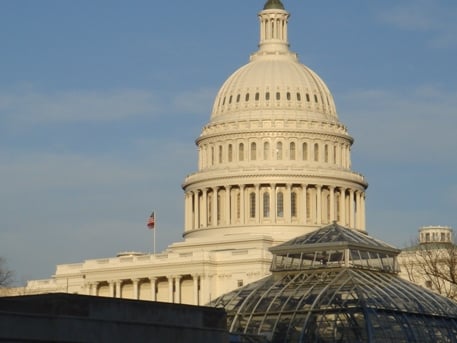Legislators are still tied up with health care issues, leaving retirement initiatives to flounder. Tax proposals may be the exception
Don't expect a lot of progress this year for legislative proposals targeting retirement, warned a prominent retirement policy attorney.
“There will be less direct congressional activity on retirement,” James M. Delaplane Jr., partner at Davis & Harman LLP, said in a panel discussion yesterday at MetLife's National Benefits Symposium in Washington.
“Most of the policymakers are focused on health care, and those with jurisdiction on health care are the same ones who handle retirement policy.”
Numerous legislative proposals are waiting in the wings, including rules addressing fee disclosure in defined-contribution plans, how advisers can work with retirement plans and the constructuion of target date plans.
Mr. Delaplane also expressed skepticism as to whether regulators would mandate either passive or active management styles in retirement plans. He did indicate, though, that a number of people in President Barack Obama's administration are inclined toward index-based passive management.
The Treasury Department, in fact, has recommended that Section 529 college savings plans use index funds, Mr. Delaplane noted.
Other legislative proposals regarding annuities — namely, an initiative that would allow tax incentives for annuity distributions — aren't going to be passed any time soon. Mr. Delaplane did note that a proposal to translate retirement account values as annual or monthly income was gaining some traction.
Most of the primary action in the near term will likely take place on the tax front. Mr. Delaplane predicted progress on a bill that would allow Roth IRA conversions inside of 401(k) and 403(b) plans. The legislation would allow participants to take advantage of Roth conversion rules while staying in the retirement program — as opposed to exiting the plan and performing an IRA conversion through a rollover. “This passed in the Senate, and it's likely to happen,” Mr. Delaplane said.
He also warned that, as the federal deficit grows, the administration may become less generous with regard to tax incentives for retirement savings, especially for single taxpayers whose income exceeds $200,000 and couples earning more than $250,000.
“Retirement income is the next challenge of DC plans, and we won't see immediate action,” Mr. Delaplane said. “But we won't be able to escape scrutiny on tax savings.”







